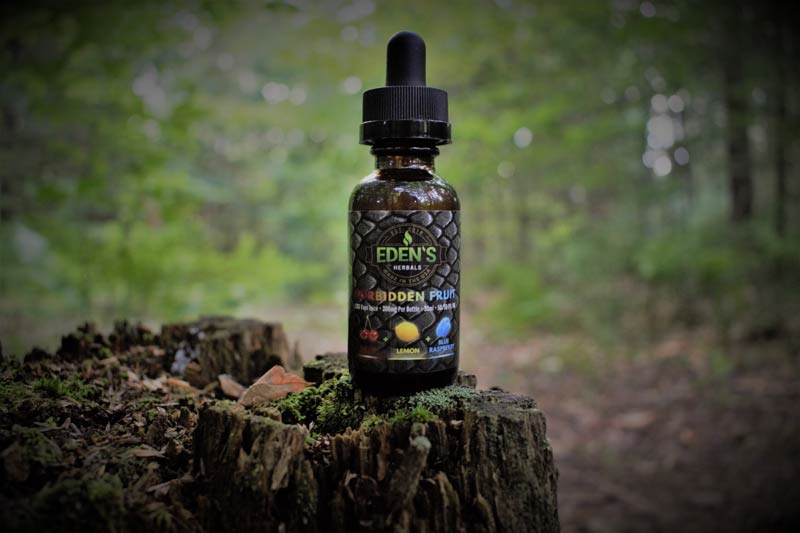 Since the legalization of recreational cannabis in Canada and the legalization of hemp in the United States, the news has been flooded with studies about the potential medical benefits of hemp-derived CBD, or cannabidiol. As a result, amultitude of CBD products has hit the market, including capsules, patches, tinctures, edibles, and vape oils. More and more people every day are turning to CBD to help them with common health complaints like pain, anxiety, and sleep disturbances.
Since the legalization of recreational cannabis in Canada and the legalization of hemp in the United States, the news has been flooded with studies about the potential medical benefits of hemp-derived CBD, or cannabidiol. As a result, amultitude of CBD products has hit the market, including capsules, patches, tinctures, edibles, and vape oils. More and more people every day are turning to CBD to help them with common health complaints like pain, anxiety, and sleep disturbances.
While consumers can choose from a variety of methods to medicate with CBD, vaping remains the quickest way to effective symptom relief. Similar to the effects of smoking, vaping effects show up within minutes. However, vaping does not expose the user to the dangerous carcinogens that come along with smoking. Instead of burning the material, vaping indirectly heats CBD vape oil. This releases atomized droplets of moisture-containing CBD that the consumer can inhale safely. The method is similar to using a diffuser for essential oils or steaming herbs for saunas.
What is CBD?
Cannabis plants contain over a hundred different compounds called cannabinoids. Cannabinoids bind to the receptors of our endocannabinoid system (ECS) to help regulate several of the body's vital systems.
The most well-known cannabinoids are THC and CBD. We've heard about tetrahydrocannabinol (THC) for years. THC, a psychoactive compound found in cannabis, produces a 'high' along with its medicinal benefits. In contrast, CBD is not psychoactive, but the compound offers many of the same medical benefits of medical marijuana. New cannabis users can now benefit from medical cannabis without worrying about psychoactive effects or passing drug panels that test for THC.
After hearing about the promising laboratory and clinical studies, patients these days increasingly experiment with CBD vape oil to help them with conditions such as:
- Chronic pain- Millions of people suffer each year from chronic pain caused by injuries, arthritis, and fibromyalgia, among other painful conditions. CBD has been shown to reduce the inflammation that causes pain.
- Anxiety- With our fast-paced modern lifestyle, it's no wonder that so many people in our culture regularly struggle with generalized anxiety, social anxiety, and panic attacks. CBD and other cannabinoids help to regulate the endocrine system which balances the emotions and inhibits the release of stress hormones like cortisol. CBD also helps patients battle insomnia that often accompanies anxiety disorders.
- Digestive issues- CBD Studies have shown promise in the treatment of digestive conditions such as Irritable Bowel Syndrome (IBS) and Crohn's Disease.
- Skin conditions- Allergic reactions, minor burns, psoriasis, and acne all respond to topical and CBD vape oil treatments.
- Neurodegenerative disorders- Studies show that CBD can help protect the brain and encourage brain cell regeneration. This is potentially life-changing news for patients with Alzheimer's Disease and Multiple Sclerosis.
- Cancer-Not only can CBD vape oil helps with painful cancer symptoms, but CBD can also reduce chemotherapy side-effects like nausea and loss of appetite.
- Epilepsy- Remarkable clinical studies have come out about epileptic children who had seemingly miraculous reductions in seizures while undergoing CBD treatment.
Now that you have an idea of what CBD can do, let's take a look at some common ingredients found in CBD vape oil products.
Vegetable Glycerin (VG) and Propylene Glycol (PG) in CBD Vape Oil
Because CBD is not water-soluble, it needs to be suspended in an oil such as coconut or olive oil. However, most CBD oil cannot be vaped directly. For vaping purposes, manufacturers mix CBD oil with vegetable glycerin. Sweet-tasting VG helps to dissolve the CBD oil and has the added benefit of producing thick clouds of vapor.
Some may wonder if vaping with vegetable glycerin is safe. VG extracts come from natural palm oil or coconut oil. VG has been FDA-approved for many years for use in food and supplements. Health-conscious consumers who do not want to consume alcohol, the most common tincture base, choose tinctures with vegetable glycerin instead. Unfortunately, purely VG-based CBD vape oil remains too thick to vape without causing equipment malfunctions, such as a clogged vaporizer. To solve this problem, manufacturers need to add a thinning agent like propylene glycol.
Propylene Glycol (PG) solves the viscosity problem of vaping CBD oil. The FDA approves of propylene glycol for use in food and cosmetics. PG is commonly found in ice cream, artificial sweeteners, whipping cream and sodas. Theaters and concert venues often use propylene glycol to create stage fog without causing any related health problems among the staff. Propylene glycol has an extremely low toxicity level. PG is generally safe to vape unless a person has a specific allergy to PG. A mixture of 70 percent vegetable glycerin and 30 percent propylene glycol creates an ideal ratio for CBD vape oil.
Alternative CBD Vape Oil Mediums
CBD vape oil manufacturers have come up with a couple of solutions for consumers who are concerned about propylene glycol or who are allergic to PG. Some producers use a base of medium-chain triglyceride oil (MCT), a compound derived from coconut oil. For years, bodybuilders and other athletes have been using MCT for its fat-burning properties and its benefits for mental clarity. Medium-chain triglyceride oil has the added benefit of being able to be vaped at low temperatures. The main drawback to an MCT-based CBD vape oil is its inability to produce clouds of vapor like glycerin-based CBD oil does. Many vape consumers, especially ex-smokers, rely on the cloud of smoke to indicate the quantity that they are vaping. It takes a while for MCT vapers to get used to a cloud-free vape.
Triethyl citrate, derived from citric acid, provides another alternative medium for vaping. Also FDA-approved, triethyl citrate is added to foods as a stabilizing agent.
Other CBD Vape Oil Additives
CBD isolate plus a carrier oil usually makes up 98-99 percent of the volume of most CBD vape oils. However, some CBD vape oils contain other additives in small amounts. A few of these are added for their health benefits, and some are added for flavor. Some common CBD vape oil additives include:
- Terpenes- Terpenes occur naturally in essential oils, and these compounds provide numerous medicinal benefits. Terpenes, plentiful in cannabis, strongly contribute to the variety of therapeutic uses of the plant. CBD isolates lose their terpenes during the extraction process. Alternatively, some manufacturers use full-spectrum CBD oil to make their CBD vape oil. This conserves compounds like terpenes and other helpful cannabinoids. These substances work together in what is called an "entourage effect" to target the ECS receptors.
- Polysorbate- Another FDA-approved additive, polysorbate helps CBD vape oil to maintain an even consistency. With this additive, users do not have to concern themselves with shaking the oil to thoroughly mix the contents.
- Natural and artificial flavorings- Various natural and artificial flavorings can be added to CBD vape oil to enhance the flavor. Although many people enjoy the pure flavor of CBD, vape oils come in a dizzying array of fruity and spicy flavors.
Steeping CBD Vape Oil
After mixing together all of the ingredients, high-quality CBD vape oil manufacturers steep the mixture. Steeping is essentially the process of aging the vape oil to provide the best possible flavor. During the steeping process, excess alcohols evaporate out which leaves the oil with a smoother taste. CBD vape oil makers age their oils in three relatively simple steps:
- Steeping-During the steeping process, CBD vape oil is stored in closed containers. Oil makers store the containers of oil in dark places and shake them periodically to move the ingredients around.
- Breathing- In the next step, the lids are removed from the containers which allows the mixture to release excess alcohols.
- Streathing- To streath CBD vape oil, artesans first vigorously shake the mixture before running it under warm water. Next, they remove the lids and let the open containers sit for a couple of hours. Finally, the manufacturers replace the caps and shake the mixture. Streathing helps to thin out the vegetable glycerin which allows the ingredients to distribute better.
Is Vaping CBD Safe?
Most of the vaping horror stories you may have heard about involve E-cigarettes. Tobacco users normally vape much more than a medicinal CBD consumer. This causes units to potentially overheat and explode. Vaping CBD for medicinal purposes only involves taking a few puffs throughout the day.
The vast majority of the risks of vaping CBD oil can be avoided by choosing high-quality vaping equipment and CBD vape oils. Proper use of vaping equipment and batteries is crucial to safe CBD vaping. We've compiled some tips for safely vaping CBD oil.
Tips for Vaping CBD Oil Safely
- Invest in good-quality vaping equipment. This cannot be said too many times. Cheap vape pens can burn the vape oil which releases carcinogens. Cheap units also often come with low-quality vape mods and batteries which have the potential to malfunction and explode.
- Follow the instructions in the user's manual that comes with your vaporizer. Every vaporizing unit follows different guidelines for optimum use.
- Buy good-quality CBD vape oil. Don't try to vape CBD oils that are not formulated for vaping. They can cause malfunctions in vaping equipment.
- Change vape coils often. You will know that your vape coil needs to be replaced if your vaped CBD oil starts tasting strange.
- Use the right charger for your batteries. Using the wrong charger can damage your batteries and equipment.
- Don't store batteries loosely alongside items like coins or keys as they can damage vape batteries.
- Keep your vape equipment dry. Wet batteries are a safety hazard.
- Throw away damaged batteries. This includes the outside wrappings of batteries. Any dented or bulging batteries should be immediately discarded.
- Vape CBD vape oil at lower temperatures. This reduces the chance of burning the oil. Burning CBD vape oil can damage the CBD molecule and add trace amounts of harmful carcinogens. Vaping at high temperatures can also add to the risk of battery explosion.
- Be careful with homemade vape mods. If a vape mod is not constructed properly according to Ohm's Law, it may malfunction and cause accidents. When in doubt, buy replacement vape mods and coils direct from a reputable manufacturer.
Who Should Not Vape CBD?
Though in most cases CBD can provide symptom relief, vaping CBD should be avoided under certain conditions. Some people should avoid vaping CBD oil, including:
- People with respiratory problems such as asthma, allergies, COPD and lung cancers should take CBD in another form such as sublingual tinctures or edibles.
- People who are taking certain medications should not take CBD. Check with your doctor to make sure CBD is compatible with your prescriptions.
- Women taking oral contraceptives. Since CBD aids the endocrine system to achieve balance, it also balances hormones like progesterone and estrogen. That balance equals fertility. Taking CBD can make oral contraceptives less effective.
CBD has not been approved by the FDA to diagnose, treat or cure any illness. All of the articles on this site are written by 3rd party content providers, expert bloggers or Doctors not directly affiliated with Eden's Herbals. Individuals should learn the risks and side effects prior to taking CBD.Make sure to always check with a medical professional before starting any new CBD treatment or medication.


